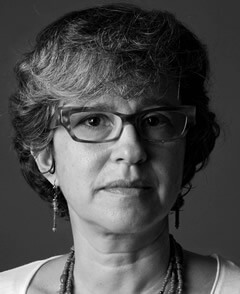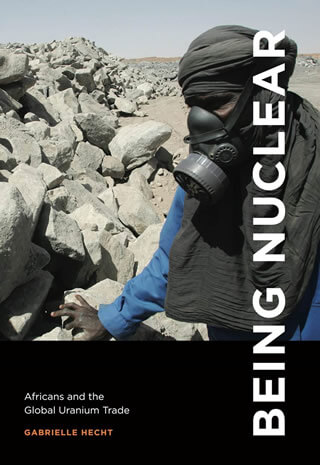Carson Prize 2016: Gabrielle Hecht


On reading this work, the Carson Prize Committee recognised that the scope of Hecht’s intellectual canvass is vast. What is particularly inspiring about this work is that she has folded into her research and writing so many burning issues for contemporary STS, including: nuclear ontologies; markets; colonialism; marginality and invisibility; governmental and non-governmental politics; labour, bodies and work; injustices and inequalities; and the price of change. This is a truly impressive and powerful piece of scholarship, and its author is a fully deserving recipient of the 4S Rachel Carson prize.
2016 Carson Prize Committee: Claire Waterton (Chair, Lancaster University, UK), Abby Kinchy (RPI, US), Sulfikar Amir (NTU, Singapore) and Ivan da Costa Marques (HCTE, Brazil)
Acceptance
Rachel Carson appears on page 19 of my son’s 8th grade Environmental Sciences textbook. Her presence in the first chapter marks the significance of her warnings about the state of our planet. Carson’s writings opened possibilities and imaginations, demonstrating the political potential of scientific work and deep public engagement. Yet so much work remains to be done. Being Nuclear is but a modest contribution to the movement that she helped to launch, but it found inspiration in her effort and passion. It is therefore a tremendous honor to receive this award, and I am grateful to the prize committee members for their work and recognition. My appreciation extends to 4S, which has offered me an intellectual community for thirty years, and which continues to embrace change and push in new directions. Special thanks to the colleagues, students, friends, and family who supported and challenged me during the fourteen years devoted to this project, and to the many interlocutors in Gabon, Madagascar, Namibia, and South Africa who willingly shared their histories and their homes. My deepest gratitude goes to Paul Edwards, whose influence is on every page, and to our son Luka, who has endured rants about technopolitics, contamination, and injustice his entire life.
Biography
Gabrielle Hecht is Professor of History at the University of Michigan, where she also directs the Program in Science, Technology, and Society. Being Nuclear also received the Martin J. Klein Prize in African history from the American Historical Association, the Robert K. Merton award from the American Sociological Association, the Susanne M. Glasscock Humanities Book Prize, and honorable mention for the Herskovits Prize from the African Studies Association. The French edition recently appeared as Uranium Africain, une histoire globale (Le Seuil, 2016). Previous books include The Radiance of France: Nuclear Power and National Identity after World War II (1998 & 2009; French editions 2004 & 2014) and the edited volume Entangled Geographies: Empire and Technopolitics in the Global Cold War (MIT Press, 2011). Hecht has a bachelor’s degree in Physics from MIT and a PhD in History and Sociology of Science from the University of Pennsylvania. She has held visiting positions in Australia, France, the Netherlands, Norway, South Africa, and Sweden. She is currently working on a pedagogical book entitled Technology and Power in Africa (under contract with Cambridge University Press), as well as a series of essays on Toxic Tales from the African Anthropocene.
